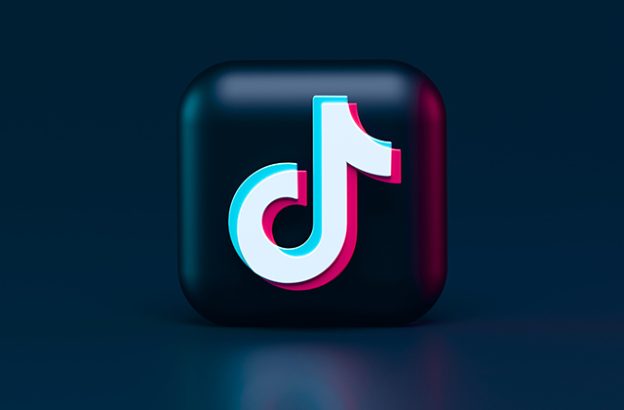Introduction
Lebanon’s area is ranked 170th in the world (CIA, 2014). It is smaller than the size of Connecticut, one of the smallest states in in America. Moreover, Lebanon is one of the few democratic countries in the Middle East region. Regarding its economy, Lebanon is a free market economy and has a very long tradition of laissez-faire economics. In addition to its coastal location on the Eastern Mediterranean coast, Lebanon is considered as the central ‘window’ of the Middle East to Europe, North Africa, and the rest of the world. Because of this, its economy has gone through some very prosperous times and was even once called the ‘Paris’ of the Middle East before the nation’s 15 year-long bloody civil war which ended in 1990. As a social media Sydney agency we have 5 years of dedicated social media marketing expertise, we know what it takes for social media marketing to have a measurable impact on a business’ growth, it’s all about the strategy we implemented.
Also, although Lebanon is tiny, it is also one of the most diverse nations in the world. Christians, Muslims, Druze, and other minority sects are spread all over the small nation and even Lebanon’s political system is based on sectarian power sharing.
However, this diversity had played a pivotal role in the nation’s problems. This diversity was a necessary condition of the country’s sectarian civil war and currently plays an important role in its political paralysis, although other factors (mainly foreign) are to blame as well. There is currently no acting President and the country’s rival political parties keep bickering and preventing rather than facilitating the country’s development.
Furthermore, Lebanon’s proximity to Israel has made it a foreign policy/proxy battleground for foreign nations, each using Lebanon for its own selfish ends.
The sad political realities of the country have significantly hurt the country’s economy. Also, since Lebanon is a service-based economy, this particular sector has taken the largest hit.
Tourism plays a significant role in the nation’s economy. According to the Lebanese Ministry of Economy & Trade (MOET), “Tourism has long been one of Lebanon’s leading economic sectors” (Economic Research Unit, 2010).
Furthermore, The World Travel & Tourism Council estimated that the travel & tourism sector in Lebanon contributed over $4 billion dollars in 2013 (World Travel & Tourism Council, 2014).
The travel & tourism sector made up about 10% of the economy in 2012 but that share dropped to 9% in 2013 (ibid, p. 14). This is due to the political situation in the country as well as some other factors. Moreover, the number of tourist arrivals in the country kept decreasing from 2011 to 2013.
Since the tourism industry has been somewhat floundering in the past few years, the room for error becomes very small for businesses in this industry. The political & economic situations are squeezing tourist-related (TR) businesses in Lebanon. This means that these businesses are forced to do more to make up for increasing losses (or decreasing profits) and with fewer resources. There is no telling when the political & economic situation in Lebanon will improve especially since the civil war in neighboring Syria shows no signs of abating.
There are many ways that Lebanese TR businesses can adapt during these times such as implementing downsizing policies and cutting back on marketing & advertising budgets. When economic recessions and tough times affect businesses, the first things to get eliminated are usually marketing budgets. But especially since TR businesses need to do more marketing to make up for lost businesses, this may not be a good idea.
One solution to this problem is to take advantage of Social Media Marketing strategies since they cost little to no resources, perfect for the current economic situation in Lebanon. Social media marketing allows TR businesses to overcome obstacles of limited budgets and decreased business.
Problem Statement
During the past few years, the positive effect of social media on business has been extremely high (Kaplan et al., 2010; Stelzner, 2010; Treem & Leonardi, 2012, p. 143; Baker & Green, 2014).
Moreover, Facebook and Twitter fans of a specific brand are much more likely to recommend and buy from these brands than non-fans (Cruz & Mendelsohn, 2011). But, we don’t need to make sure of social media’s impact on business through research studies. For social media users, which include over 30% of the world, this fact is known. More and more businesses are inserting Social Media marketing tools into their marketing strategies and, in some cases, have even become an integral part of their overall business strategy.
Naturally, one would expect that Lebanese businesses would quickly adopt Social Media Marketing as a key role in their overall marketing strategies but this is not the case. When it comes to the Middle East and especially Lebanon, the region is far behind the West in social media usage. Not only that, when it comes to businesses involved in the tourism industry, there is much room for growth. Little investment in technology is keeping tourist businesses away from maximizing marketing opportunities given by social media.
The Lebanese tourism industry is not taking advantage of social media marketing tactics even though the advantages of doing so are apparent. This presents a great problem especially since the economy is going through a very rough time.
Moreover, Lebanese TR businesses and businesses in Lebanon in general are not adopting social media tools as they should. This presents a huge problem in the waste of resources as well as significant missed opportunities as a larger target audience can be reached via social media enabling businesses that adopt social media marketing tools gain a better chance of success and prosperity.
Purpose of the study
The fruits and advantages of social media marketing tools may take significant time to come about in Lebanon if we are ignorant of the factors that have led to the prevention of widespread social media marketing adoption.
Also, as long as no study goes into the issue of effectively implementing a social media marketing campaign in the Lebanese context, many TR businesses may be lost even if they decide to adopt social media marketing tools.
Additionally, even though there have been numerous studies in the West about effectively implementing social media marketing campaigns, the results of these studies may or may not apply to the Lebanese context. Therefore, it is also the purpose of this study to find out those factors related to effectively implementing social media marketing among Lebanese TR businesses.
At the end, there is no doubt that social media marketing plays an extremely important role in the marketing campaigns and even in the overall success of tourism-related businesses.
Lebanese Tourist-Related (TR) businesses fall far behind the developed world in investing and using SMM. Since there are many benefits of SMM, why is this so? Also, to catch up to the rest of the world, what is the most effective way for Lebanese TR businesses to deploy an SMM campaign? So, it was the study’s purpose to find reasons linked to such low investment & use of SMM by Lebanese TR businesses and to help guide these businesses in effectively using SMM.
Methodology
The purpose of this study is twofold. This study aims to find out exactly what those factors are that are preventing the widespread adoption of social media marketing tools among Lebanese TR businesses. The philosophy used is interpretivism, for an inductive approach to go from specific to general research, the strategy is ethnographic, and the methodology is qualitative. In-depth interviews are used with ten participants from ten different companies. Five companies had high social media ‘visibility’ and the other five didn’t. So, the participants’ answers provided very useful information and solutions for the research problem.
Findings
The results found that among the most relevant factors of little SMM investment & use by Lebanese TR businesses are that many don’t see benefits to using SMM and so don’t support it.
The results also provided useful information on factors for effectively implementing SMM by Lebanese TR businesses including the acceptance of SMM by ownership/decision-makers and the importance of these people in seeing the benefits of SMM. Also, problems with implementing SMM include negative customer feedback and inter-departmental power struggles.
Recommendations include communicating the benefits of SMM to Lebanese TR businesses which is of such high importance to get them to use SMM. There should also be an SMM plan with a consistent schedule outlining the days to add content to social media sites as well as comprehensive monitoring of SM user comments about the business.
At the end, it is the researcher’s hope that the study helped shed light on important aspects of SMM and its relation to Lebanese TR businesses. It is also hoped that the recommendations be taken into consideration by Lebanese TR businesses. If you also ready some tips with some social media experts you can never go wrong with your marketing campaign.
Article Source: http://EzineArticles.com/9405389


